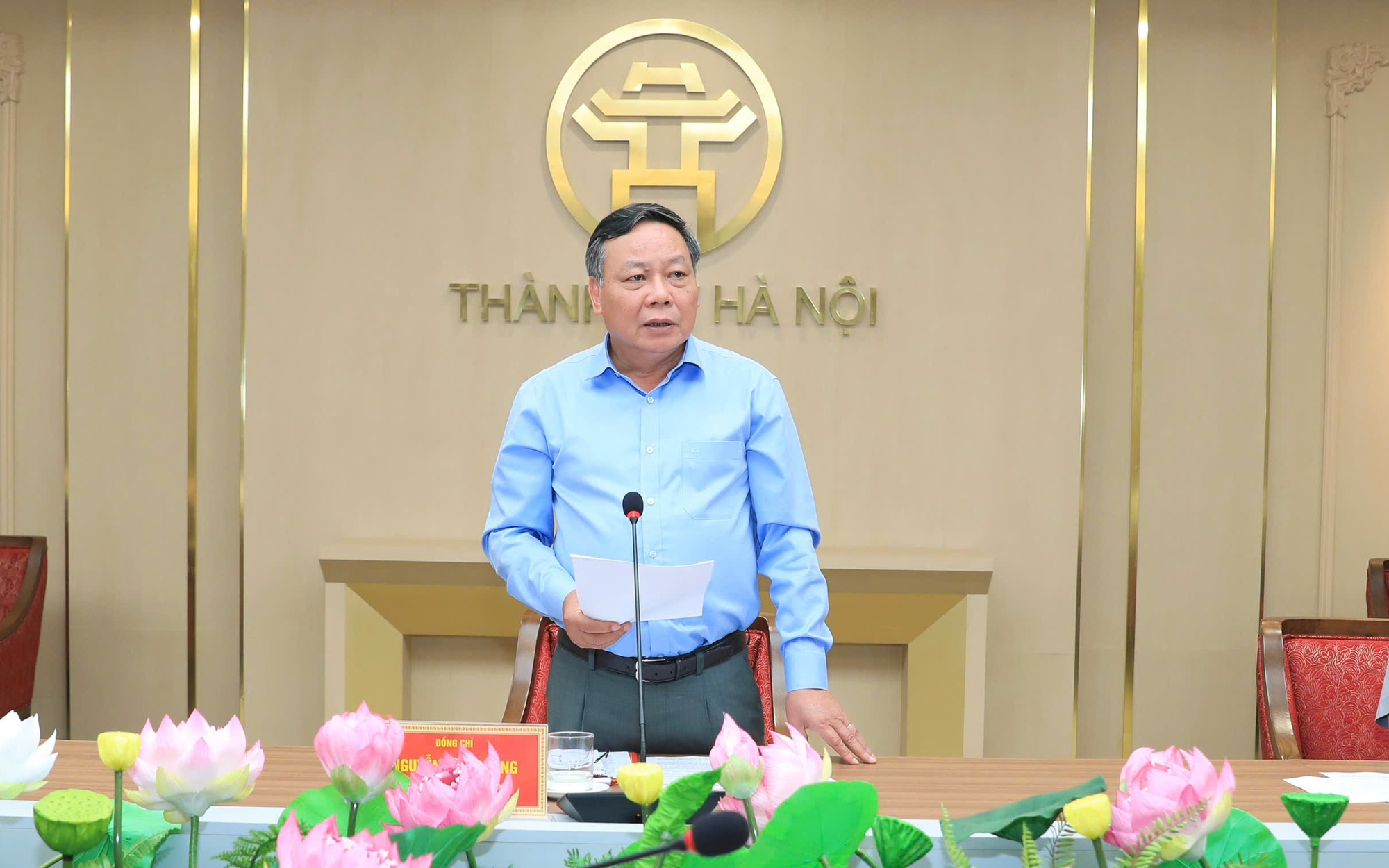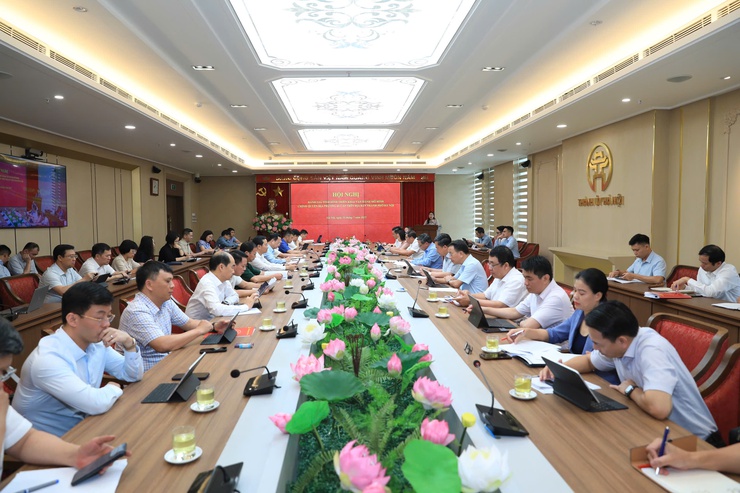Since July 1, these units have proactively and responsibly operated the two-tier local government structure. Many of them have shown innovation in reorganizing administrative structures and serving residents and businesses, despite having to manage a wide range of simultaneous responsibilities.

Vice Secretary of the Hanoi Party Committee Nguyen Van Phong.
Phong noted that several communes and wards have already stabilized their organizational structures and developed operational plans through the end of 2025. These plans include socio-economic development tasks tailored to local needs. Additionally, local units have promptly started preparations for the first Party Congresses at the commune and ward levels.
The Standing Deputy Secretary praised the community-oriented approach demonstrated through meetings with grassroots Party cells and neighborhood groups, as well as the assignment of officials and civil servants to directly oversee and support each residential area. He emphasized that practical implementation will inevitably raise issues, and resolving them without relying on residents and grassroots organizations will be difficult.
Phong also commended the willingness to learn among local officials, some of whom have independently studied and learned from other localities. City-level agencies have provided guidance, training, and support to address challenges at the grassroots level.
Highlighting the heavy workload ahead, Phong stressed that local units must simultaneously restructure administrative systems, stabilize infrastructure, promote socio-economic development, ensure social welfare, and organize major events for the nation and the capital.
He urged communes and wards to take decisive action to demonstrate leadership capacity and the effectiveness of state administrative agencies, especially in managing urban order and environmental sanitation.
He called for a shared understanding that implementing the two-tier local government system, especially at the commune level, is a significant undertaking. The results achieved thus far are only initial steps and require strong political commitment from the entire government system, particularly at the grassroots level. Therefore, localities must continue reinforcing the political mindset of officials, Party members, civil servants, and public employees, engaging in their work with the highest level of commitment.
He said authorities must also mobilize and encourage residents to participate in building the new commune-level government system. Everything must be oriented toward serving public interests, relying on the people, and working with them to fulfill political tasks from urban to rural areas.
Phong stated that the city has issued plans for the training and professional development of its workforce. From now until October 2025, the city will focus heavily on training, especially for commune-level officials in areas requiring specialized knowledge such as information technology, digital transformation, land management, and accounting.

Overview of the event.
He recommended the prompt development of a comprehensive database from the commune level upward, organized by sector, field, and position. This shared citywide database will help identify training, development, and recruitment needs across departments. Initially, officials already within the system, including part-time personnel, should be fully utilized.
Regarding training formats, the top priority should be self-study and capacity building through independent learning. This should be followed by practical training sessions with clear and appropriate instruction methods. In the current context, training classes during regular working hours should be minimized.
In the long term, the city should design a comprehensive training program. The five-year goal is to build a professional workforce of civil servants and public employees who are well-suited to their roles, especially in highly specialized fields, aligned with the demands of this period.
Acknowledging that challenges and shortcomings may emerge as the new administrative structure operates, Phong urged relevant units to proactively study these issues and propose solutions. At the same time, he emphasized the importance of digitizing records to create a centralized city database, and he tasked the City People's Committee with directing the Public Administration Service Center to implement this effort.
Phong highlighted that, within just two weeks, 24 online meetings had been held. To improve efficiency, he assigned three offices—the Party Committee Office, the Office of the National Assembly Deputies Delegation and the People's Council, and the City People's Committee Office—to quickly submit to the Standing Committee of the Party a unified principle for convening city-level meetings. These meetings must consider the right participants, the relevance of topics, and must clearly define roles and responsibilities.
To prepare for the 80th anniversary of the August Revolution and National Day on September 2, Phong proposed launching a citywide campaign focused on environmental sanitation. He emphasized that this would serve as a key indicator of the leadership and management capabilities of officials in the 126 newly established communes and wards, contributing to building a civilized and green city.
He also requested that the Party Committee's Organizing Commission urgently develop and submit to the Standing Committee a regulation on the decentralization of personnel management. The City People's Committee should soon issue a policy on decentralization and delegation of authority, especially in socio-economic matters.
Regarding the first Party Congresses at the commune and ward levels, Phong stressed that, given the limited time, it is essential to focus on preparing the congress documents, particularly the sections on direction, tasks, and solutions. These documents must be thoroughly discussed to ensure democratic participation and reflect the collective wisdom of the commune-level leadership and Party members.
He also suggested a fundamental change in how congress documents are prepared—moving toward concise and focused content that addresses key issues. The evaluation of past results should be brief, with the main emphasis placed on outlining goals, directions, and solutions for the future.
In addition, there must be specific action programs, proposals, and projects laid out annually through the end of the term, attached to the draft political report. The section on strategic directions and long-term objectives should extend beyond the five-year term to ensure continuity in addressing major local issues.